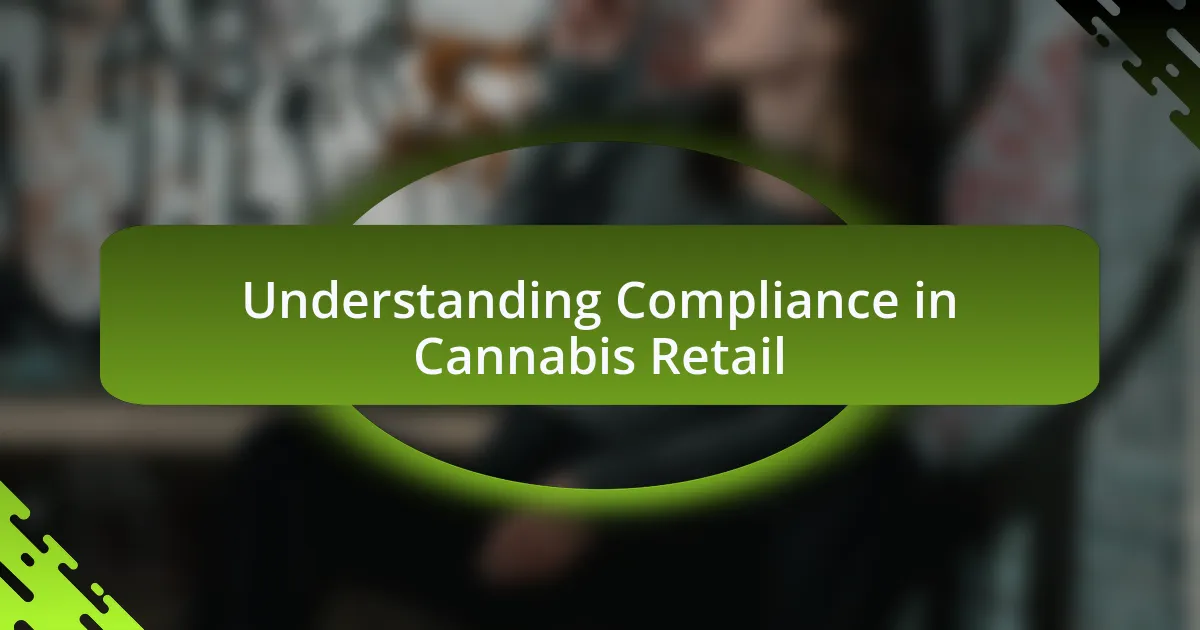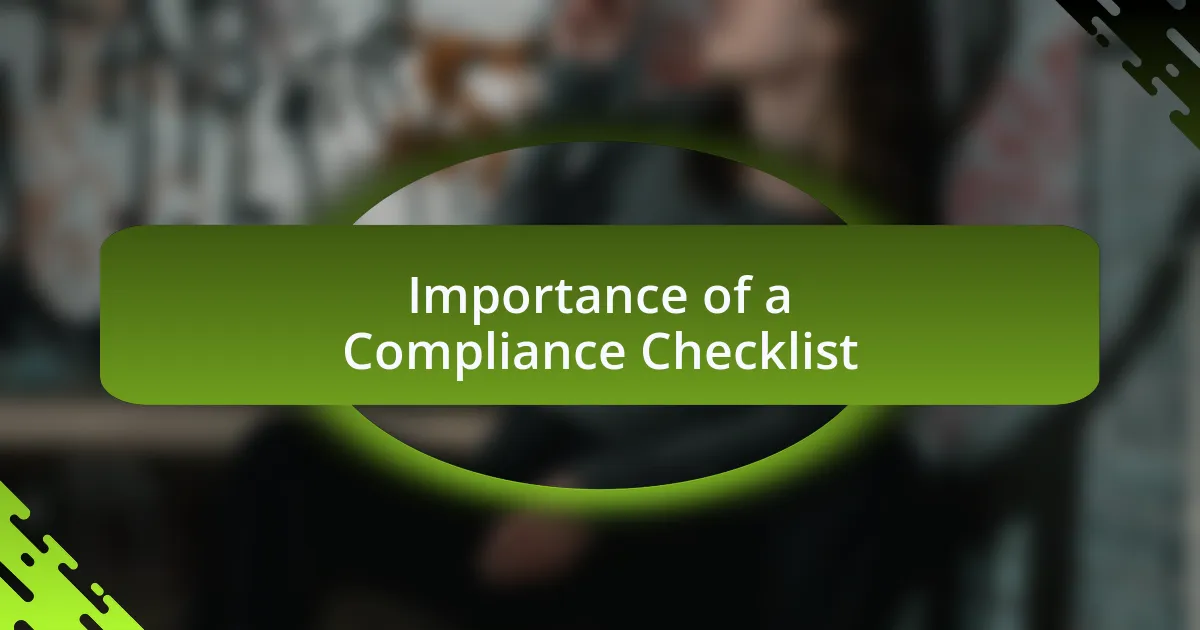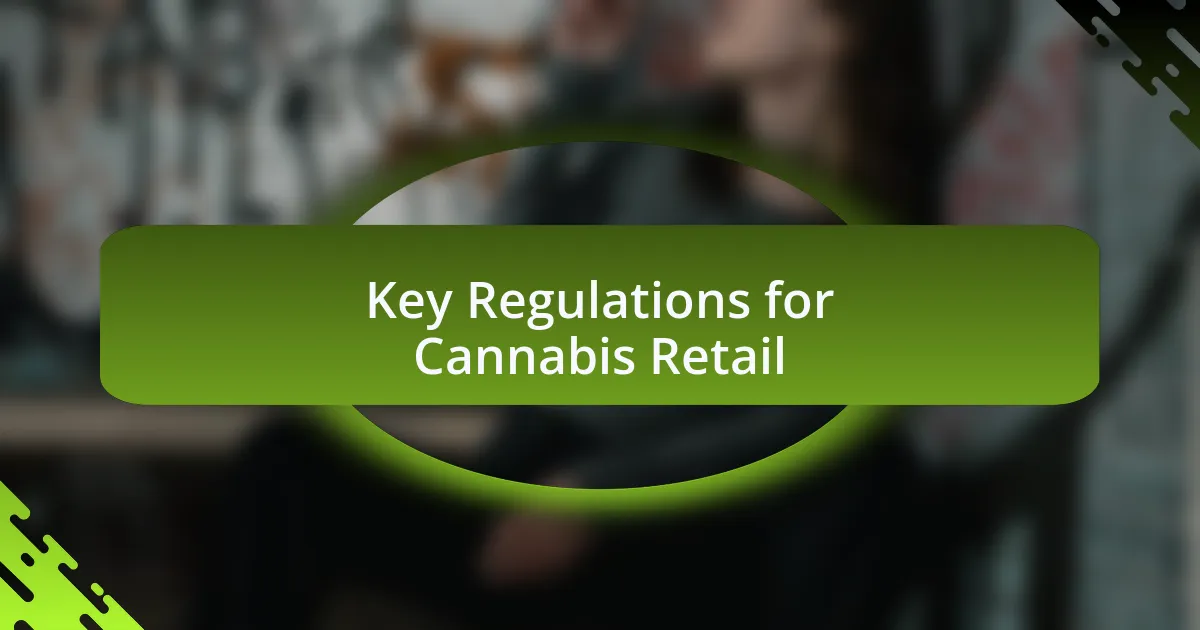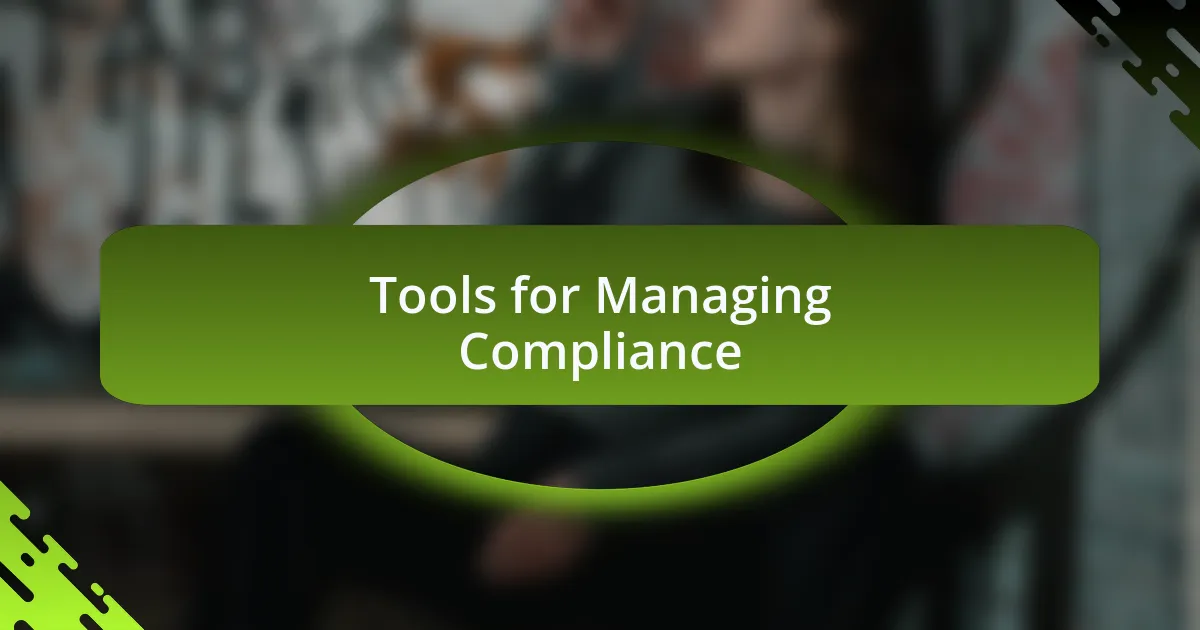Key takeaways:
- Compliance in cannabis retail is essential for building trust with customers and protecting the business from penalties.
- A well-organized compliance checklist is crucial for navigating laws, empowering staff, and maintaining operational confidence.
- Regular audits, team training, and utilizing specialized software tools significantly enhance compliance management and efficiency.
- Continuous learning and collaboration with industry peers are vital for staying updated on regulations and improving compliance practices.

Understanding Compliance in Cannabis Retail
Navigating compliance in cannabis retail can feel like wandering through a maze. When I first ventured into this industry, I was overwhelmed by the myriad regulations that varied not just by state but often by local jurisdictions. How do you keep track of it all without feeling like you’re drowning in paperwork?
For me, it was crucial to understand that compliance isn’t just about following rules; it’s about building trust with customers and the community. I remember the moment I realized that a solid compliance framework would not only protect my business from fines but also help establish credibility and foster strong relationships with my clientele. Have you ever considered how your commitment to compliance reflects the integrity of your brand?
Engaging with compliance also means staying informed about changes that can occur at a moment’s notice. I grew accustomed to regularly reviewing updates from regulatory bodies and even attending local meetings to voice concerns and gather insights from fellow retailers. It’s empowering to be part of a community that prioritizes adherence to laws while working together to shape a positive future for cannabis retail.

Importance of a Compliance Checklist
Having a compliance checklist is crucial in the cannabis retail sector because it ensures no critical regulation falls through the cracks. I remember a time when I overlooked a simple packaging regulation and faced hefty fines. That experience taught me how vital every detail is in maintaining a compliant operation, reaffirming that a well-organized checklist can save you not just money, but also your reputation.
Compliance checklists also act as a reliable reference for your team, providing clarity in an often confusing legal landscape. When I implemented a detailed checklist, I noticed a shift in my staff’s confidence. It was as if the fog lifted; they understood what was expected and felt empowered to carry out their roles effectively. How has your team navigated compliance? My guess is they would appreciate having a collaborative framework in place.
Moreover, a compliance checklist is a living document that evolves with the changing laws and regulations. As I regularly update mine, it fosters a proactive rather than reactive approach to compliance. This perspective significantly reduces stress and allows me to focus more on enhancing customer experiences and less on worrying about potential violations. How reassuring is it to know that with the right tools in place, you can maintain compliance and thrive in this emerging industry?

Key Regulations for Cannabis Retail
In the realm of cannabis retail, staying on top of local and federal regulations is non-negotiable. For instance, my experience with state licensing requirements highlighted how essential it is to have every permit in place before opening doors. It was a sobering moment when I realized that even a minor oversight could mean the difference between operating legally and facing severe penalties.
Additionally, I learned that product labeling regulations are a crucial component for compliance. When I first launched my shop, I assumed that mere compliance with state guidelines was sufficient. After a friendly surprise visit from a regulatory inspector, I realized that clear labeling practices not only fulfilled legal requirements but also built trust with my customers. Have you examined your product labels lately? A thorough review might uncover opportunities for improvement and transparency.
Finally, employee training is often an overlooked regulation that significantly impacts compliance. I vividly recall the days when staff seemed unsure about product regulations and customer interactions. Once I invested in comprehensive training sessions, the change was remarkable; my team became not just compliant but also confident ambassadors for the brand. How prepared is your team to handle compliance questions? It’s never too late to empower them with the knowledge they need.

Tools for Managing Compliance
When it comes to managing compliance in the cannabis retail space, utilizing specialized software tools can be a game changer. I invested in a compliance management platform that streamlined my processes, making it easy to track regulations, deadlines, and necessary documents. Imagine the relief I felt when I could access all my compliance information with just a few clicks, rather than sifting through piles of paperwork.
Beyond software, I’ve also seen the value in establishing a dedicated compliance team, even if it starts as just one or two people. In my case, delegating compliance oversight allowed me to focus on providing excellent customer service while ensuring all regulations were met. Have you thought about how a small compliance team could alleviate some of your operational burdens?
Lastly, I can’t overstate the impact of regular audits and self-assessments. Early in my journey, a surprise audit revealed inconsistencies in our record-keeping, prompting me to implement a quarterly review process. The peace of mind I gained from proactively identifying issues was invaluable. Are you taking steps to regularly check your compliance status, or are you waiting for someone else to find the gaps?

Personal Insights from My Journey
Reflecting on my journey of building a compliance checklist, I found that the learning curve can be steep but incredibly rewarding. There were moments when I felt overwhelmed, especially when I first encountered the labyrinth of cannabis laws. I remember sitting at my desk late at night, pouring over regulations, wondering if I would ever feel confident in my understanding. But each small victory fueled my determination, reminding me how essential compliance is for a thriving business.
I vividly recall my first experience with regulatory inspections. I was so anxious, thinking back to every detail I had meticulously documented. Fortunately, that preparation paid off—I passed the inspection without a hitch! This success solidified my belief that having a robust compliance checklist is crucial not just for meeting legal requirements, but also for building trust with my customers. Can you remember a moment when your preparation led to unexpected success?
In developing my compliance checklist, I learned the importance of adaptability. The cannabis industry is ever-changing, and so are the regulations. I made it a point to stay connected with industry groups and forums, constantly seeking updates and insights. When I implemented feedback from others in the sector, I not only improved my checklist but also fostered relationships that enriched my understanding. How are you keeping your compliance resources dynamic in this fast-paced landscape?

Lessons Learned in Compliance Building
Building a compliance checklist taught me the critical importance of continuous learning. I can’t tell you how many times I thought I had everything figured out, only to discover a new regulation that required immediate adjustment. One evening, while scrolling through a cannabis industry newsletter, I stumbled upon a significant update—had I not been proactive in keeping up with these resources, it could have led to serious consequences for my business. How often do we assume we know all there is to know, only to find there’s always more beneath the surface?
Another lesson emerged from collaboration. Early on, I tried to tackle compliance on my own, thinking it made me more efficient. However, in one of my group discussions, a fellow retailer shared their struggles with inventory tracking tied to compliance. Their insights inspired me to rethink my approach, leading me to integrate a software system that simplified my reporting process. It was a game changer! How often do we underestimate the value of shared experiences with peers?
Lastly, I came to appreciate the emotional aspect of compliance. It can feel like an uphill battle, filled with anxiety and uncertainty. Yet, I remember how a supportive mentor reminded me that compliance isn’t just a checkbox—it’s about protecting our customers and the community. Their encouragement helped me see compliance in a new light, transforming my anxiety into a sense of purpose. How do you frame the emotional journey of compliance in your own practice?